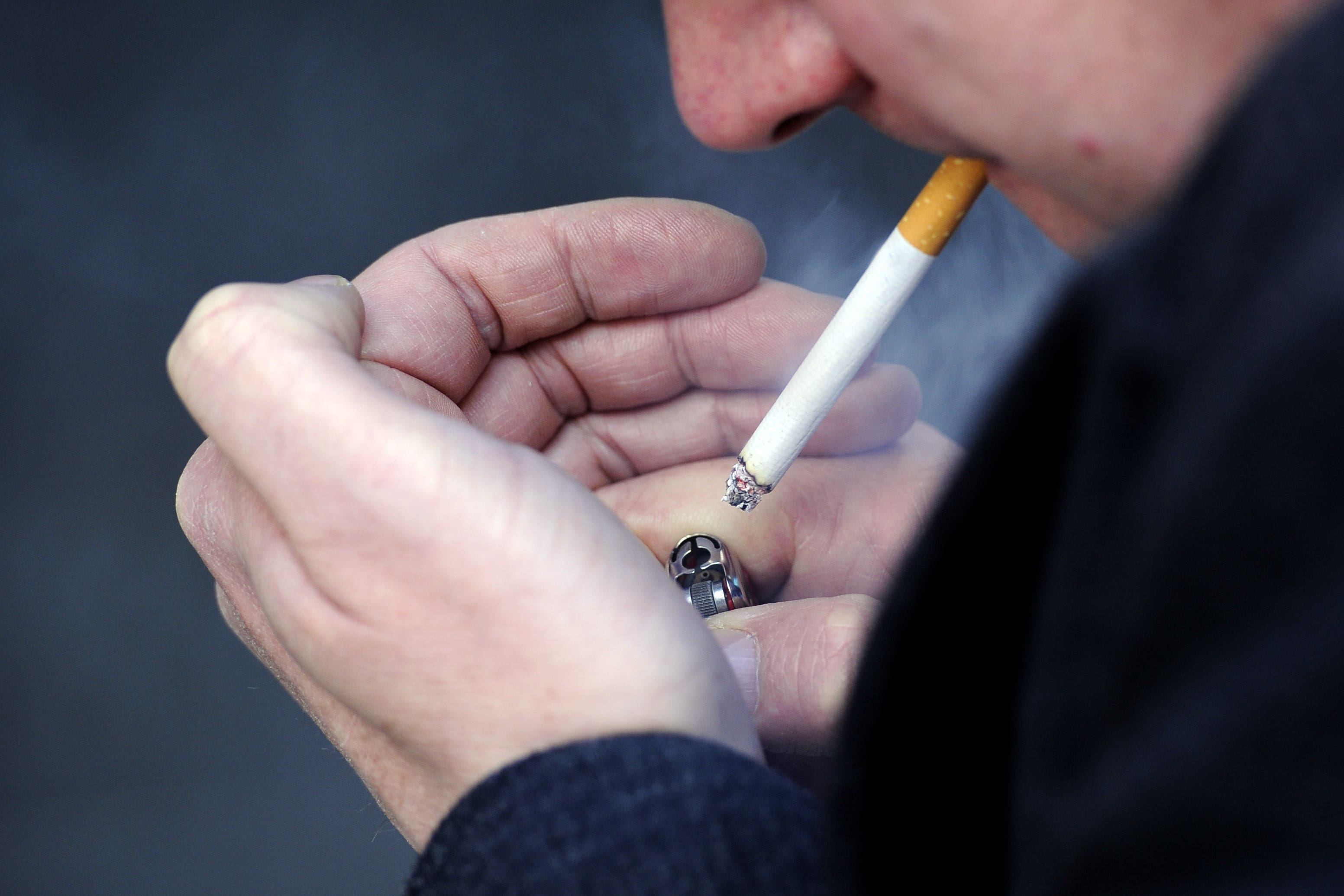Almost £11 billion per year ‘could be freed up if people quit smoking’
The Tobacco and Vapes Bill will restrict the sale of tobacco so that anyone turning 15 this year, or younger, can never legally buy it.

Almost £11 billion per year could be freed up and spent in England’s communities if people quit smoking, according to new research.
The study, from experts at the University of Sheffield, found poorer regions of the country could get the most benefit from money saved on tobacco.
A team from the university’s addictions research group looked at how much people spend on cigarettes and tobacco each year and how this money could be spent instead in towns, cities and villages.
This is money that people can instead spend on other things such as in shops, on entertainment, or other services
They found that £10.9 billion – made up of spending on tobacco minus the amount kept by local retailers as profit (7%) – could be reinvested in local shops, services and on entertainment.
Study author Dr Damon Morris said the money currently leaving local communities is taken by the tobacco industry as profit or by the Government in tax.
“This is money that people can instead spend on other things such as in shops, on entertainment or other services,” he said.
He added: “The total economic benefit of going completely smoke-free would be greater than £10.9 billion.
“As well as the local area benefits, there would be savings made by the NHS with fewer ill smokers, and benefits to the wider economy through fewer people being unable to work due to smoking-related illness.”
It comes after the Tobacco and Vapes Bill was introduced to Parliament, which will restrict the sale of tobacco so that anyone turning 15 this year, or younger, will never legally be sold cigarettes.
It will effectively raise the age of tobacco sales by one year every year, with the aim of stopping today’s youngsters from ever taking up smoking in the first place.
If the Bill passes, ministers say smoking rates among those aged 14-30 could be near zero by 2040.
The new study, published in the journal Tobacco Control and shared with the PA news agency, included data from the Smoking Toolkit Study, made up of 18,721 smoking adults who estimated how much they spent on smoking.
By reducing smoking rates and freeing up disposable income, policy makers have the opportunity to alleviate smoking-induced deprivation and empower individuals to redirect funds towards essential needs
This was compared with figures from Government tax receipts and national estimates of illegal tobacco use.
It concluded: “The total dividend in England is estimated to be £10.9 billion each year, which equates to £1,776 per person who smokes or £246 per adult regardless of smoking status.”
Dr Duncan Gillespie, senior research fellow at the University of Sheffield’s school of medicine and population health, said: “By reducing smoking rates and freeing up disposable income, policymakers have the opportunity to alleviate smoking-induced deprivation and empower individuals to redirect funds towards essential needs.
“This reallocation of resources can contribute to economic prosperity and help to reduce geographic inequalities in society.”
Government figures suggest smoking costs the UK around £17 billion a year, including £10 billion every year through lost productivity.
It says this cost dwarfs the around £10 billion raised through taxes on tobacco.
Bookmark popover
Removed from bookmarks